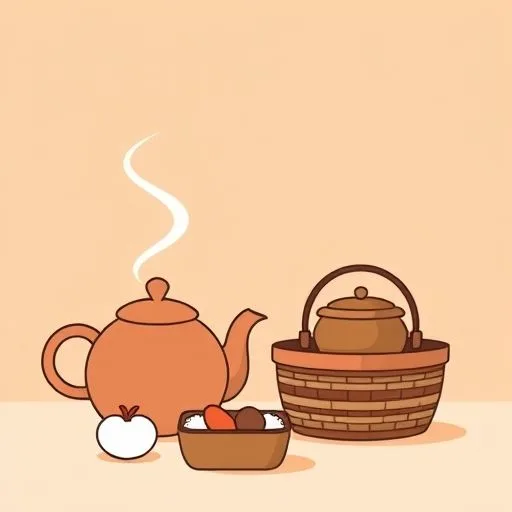
Last night, I caught her mid-scroll through an AI-generated schedule while packing lunches. But it wasn’t the tech that stopped me—it was how she’d tweaked every suggestion to fit our messy, beautiful reality. That’s when it really clicked for me: AI isn’t carrying the load here. We are. We’ve all felt that quiet weight parents shoulder—the mental math of pickups, allergies, and tears held back until bedtime. What if I told you AI isn’t here to fix that? It’s here to finally let us breathe—just for a moment—while we’re doing it all.
It’s Not Magic—It’s Your Teammate Thinking

Remember when you first moved in together? You didn’t expect them to read minds—you learned the espresso machine together, right? Same with AI. When she asks, ‘What’s a fun calm-down game for a frustrated five-year-old?’ instead of ‘list anxiety activities,’ she gets playground-tested ideas, not textbook jargon. That shift from commands to conversation? That’s the golden ticket.
I’ve watched her do it a hundred times: ‘AI, how would you handle two kids bickering over toys mid-grocery trip?’ And suddenly, it’s not a robot spitting data—it’s a teammate brainstorming while she’s wrestling a stroller through automatic doors.
We’ve seen parents turn generic suggestions into something real. Like when AI proposed kale smoothies for breakfast (which made us chuckle), and she laughed but spun it into ‘Let’s make smoothies with the kids picking ingredients!’ That’s the sweet spot—using AI for the first draft, then adding human magic. Research shows this ‘good enough’ approach saves busy parents seven minutes per task. Seven minutes to breathe. Seven minutes to squeeze a tiny ‘I see you’ into your kid’s day. That’s not tech—that’s grace.
Why ‘Good Enough’ Suggestions Beat Perfect Plans

Let’s be real: that first AI email draft for teacher conferences probably made her cringe. ‘Dear Educator,’ it started. Yikes. But here’s what she did—she took the bones and made it hers. ‘Remember when our child drew that heart for you last week? I’d love to hear how they’re growing socially.’ That’s not editing—that’s soul-work. I’ve learned the hard way: when I tried ‘automating’ bedtime stories, my kid just wanted my voice, my pauses. AI handles the scaffolding; we bring the heartbeat.
Watch how parents use those ‘imperfect’ outputs. When AI suggested a rigid meal plan, she asked, ‘What can we cook *together* with pantry stuff?’ Suddenly, ‘chicken and rice’ becomes a sticky-fingered adventure. That’s the secret no app can replicate: our instinct to turn efficiency into connection. We’ve all felt that sigh of relief when the GPS reroutes us around traffic—but it’s our choice to play ‘I Spy’ during the detour that turns chaos into memory. That’s where the real parenting wins live.
Where AI Stumbles (and Why That’s Beautiful)

AI can’t catch the micro-expression when your child says ‘I’m fine’ but their eyes say ‘I need you.’ That moment when she pauses the app reminder because she sees tears welling up? That’s irreplaceable. I’ll never forget watching her ignore an AI alert about ‘optimal sleep times’ because she sensed her kid needed five more minutes of back rubs. Tech handles logistics so we can lean into the heart stuff—the messy, unquantifiable magic of parenting.
Here’s what studies miss: AI falters gloriously in the gray areas. When it suggested ‘positive reinforcement for potty training,’ she knew her kid needed quiet patience after a meltdown. That’s not a flaw—it’s freedom. Our job isn’t to perfect the tool; it’s to protect those sacred human moments where algorithms fall short. Like when the app said ‘respond to tantrum in 2 minutes,’ but she sat on the floor until the storm passed. That’s the work no AI can touch—and why parents will always be the real MVPs.
AI handles the scaffolding; we bring the heartbeat.
Three Tiny Rituals That Feel Like Cheating (In a Good Way)

We’ve built these micro-habits into the chaos: First, the 6 a.m. ‘traffic check’ voice command while she’s packing lunches. Not ‘show traffic,’ but ‘is the school route clear today?’ AI adjusts for drop-off patterns, and she gains two minutes to actually taste her coffee. Second, turning meal-plan suggestions into ‘what can we cook *together*?’ moments—like swapping AI’s ‘quinoa bowl’ for ‘build-your-own-taco-bar.’ Third, using AI to pre-draft school emails so she can focus on the grace notes: ‘P.S. Mia drew you a picture today!’
These aren’t life hacks—they’re quiet rebellions against burnout. That ‘extra’ 15 minutes AI creates? It’s where she turns ‘Mom, I built a fort!’ into ‘Let’s grab flashlights!’ I’ve stopped calling it ‘using AI.’ Now it’s ‘making space for us.’ Because let’s be honest—parents don’t need another solution. We need stolen moments where we’re not the heroes, just people fully present. That’s the tech win worth celebrating—these small moments accumulating into the most meaningful parenting victories, where the joy of being fully present becomes our greatest reward.
Source: ‘Make AI an ally’, The Star, 2025/09/13 23:00:00
